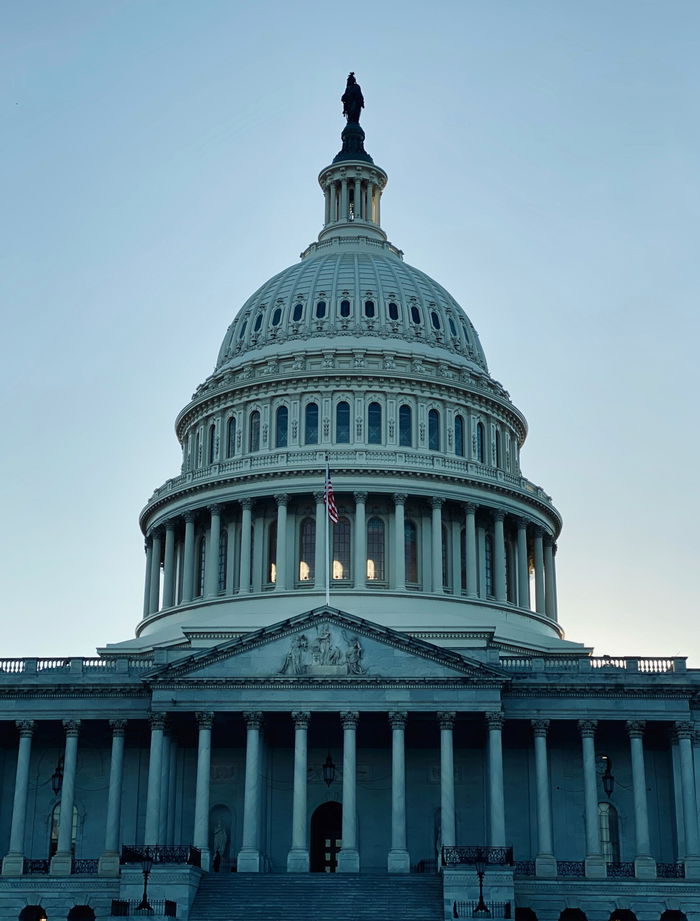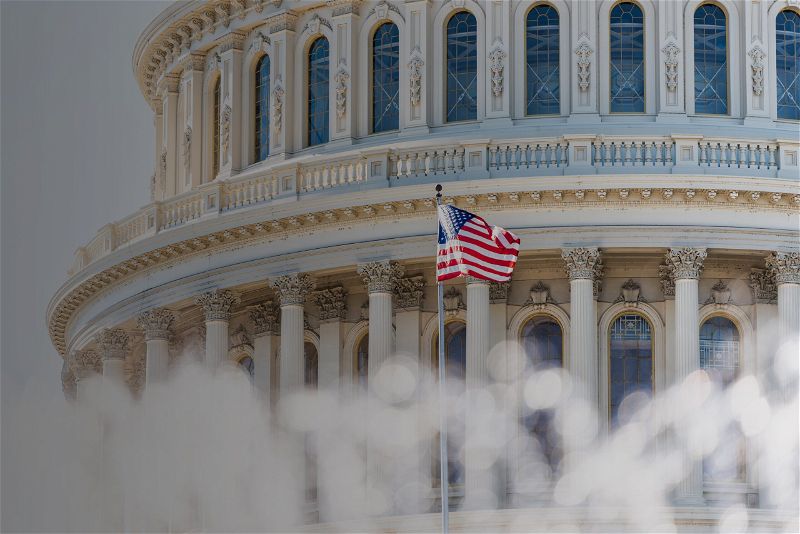

We believe in the power of nonpartisan policy reform to create conditions for all to thrive.

Nearly half of U.S. workers are in low-paying jobs. Systemic issues in education, employment, and workforce development prevent millions of people from advancing economically and threaten our 10-year goal of 75 million people working in quality jobs.
The Policy & Advocacy team at Jobs for the Future leads the national conversation on economic advancement, influences state and national discussions, and designs practice-informed solutions. Our work is bold and field-tested, and we work on both sides of the aisle.
Key Initiatives

Policy Solutions for Economic Advancement
We champion practice-informed, nonpartisan policy approaches for changes in the education system and workforce systems. We provide expert guidance to federal and state policymakers and other stakeholders through forums and institutes, subject-matter expertise, and design and implementation assistance.
Financing the Future
We explore innovative ideas for financing education to increase affordability, quality, and employer engagement.
News & Ideas


How State Policy Can Transform Career Navigation for Young People: A 50-State Analysis
This report highlights the need for states to build more effective career navigation systems to better meet the needs of all young people and analyzes the extent to which each state has enacted the policies…

Policy Blueprint to Modernize & Expand Apprenticeship Nationwide
This report recommends a comprehensive set of federal policies to modernize and scale apprenticeships, meeting the needs of today’s workers and the demands of today’s economy. The U.S. labor market is at a crossroads. Unemployment…

JFF Shares Budget Recommendations With White House
March 31, 2025
Six Critical Actions for a New Congress in a New Year
Policy Recommendations to Invest in Our Workforce and Economy

Preparing Today’s Youth for the Jobs of the Future
JFF’s policy recommendations for serving youth in infrastructure, climate, and semiconductor production careers Read JFF’s nine policy recommendations for better serving youth who are disconnected from school and work, based on the perspectives they shared…

JFF Calls on Congress to Pass Promising WIOA Bill
December 9, 2024
JFF’s Federal Policy Blueprint for the Trump Administration
Recommendations for the Incoming President’s First 100 Days and Beyond

Federal Policy Unlocks for a Skills-First Economy
In this paper, JFF offers a comprehensive set of federal policy recommendations that are highly actionable, practical, and bipartisan—focusing on solutions that can be implemented to build a more dynamic and human-centered economy. Jobs for…

10 Tips to Get in on Historic Workforce Funding Right Now
How to Use Investments in Infrastructure, Semiconductor Technology, and Climate to Help Workers This guide outlines 10 shifts workforce development agencies can make to harness the power and help drive the impact of infrastructure, semiconductor…

Building Blocks Toward the Big Blur
State Policy Framework This framework describes steps states can take toward adopting the Big Blur’s four key components, plus four types of policy environments states encounter in creating a reimagined grade-11-14 learn-and-work system. Related Content

Federal Policymaker Networks
JFF’s Congressional Staff and Executive Branch Networks on Economic Advancement connect federal policymakers with practitioners from across the country to learn about evidence-based, replicable, and innovative practices that meet the nation’s most complex education and workforce challenges.

Policy Leadership Trust
JFF established the Policy Leadership Trust to marshal evidence, expertise, and insights of postsecondary practitioners to influence the direction of state and federal policy. Community college leaders and state system officials serving on the trust identify how policy can help more learners and workers attain credentials and skills and succeed in the labor market.
Team

Karishma Merchant
Associate Vice PresidentKarishma Merchant is associate vice president of Policy & Advocacy at JFF. She leads nonpartisan engagement with federal and state policymakers to craft education and workforce policies that drive economic advancement for all. Before joining…

Taylor Maag
Director of Workforce PolicyTaylor Maag is a director of workforce policy in Policy & Advocacy at JFF. She leads JFF’s federal and state workforce policy efforts, conducting research, developing solutions, writing policy recommendations, and convening necessary partners to…

Ethan Pollack
Senior DirectorEthan Pollack is a senior director in the Policy & Advocacy practice at JFF. He leads the Financing the Future initiative, which explores new approaches to financing postsecondary education. He tracks the evolution and performance…

Jennifer Stiddard
Senior Director, Government AffairsJennifer Stiddard is a senior director in the Policy & Advocacy unit at JFF. She helps advance JFF’s policy agenda by driving legislative and executive engagement, developing policy proposals, and strengthening JFF’s relationships with federal…

David Altstadt
DirectorDavid Altstadt is a director in the Policy & Advocacy practice at JFF. He develops nonpartisan policy solutions and cultivates partnerships with policymakers, practitioners, and advocates to influence the direction of national and state policies…

Erica Cuevas
DirectorErica Cuevas is a director in the Policy & Advocacy practice at JFF. She leads policy analysis, research, advocacy, and communications efforts to strengthen federal and state policy to spur innovation and improve pathways across…

Noah Bein
Director, Justice and MobilityNoah Bein is a director in Policy & Advocacy at JFF. He works closely with the Center for Justice & Economic Advancement to steer JFF’s strategic efforts at the state and federal levels to remove…



